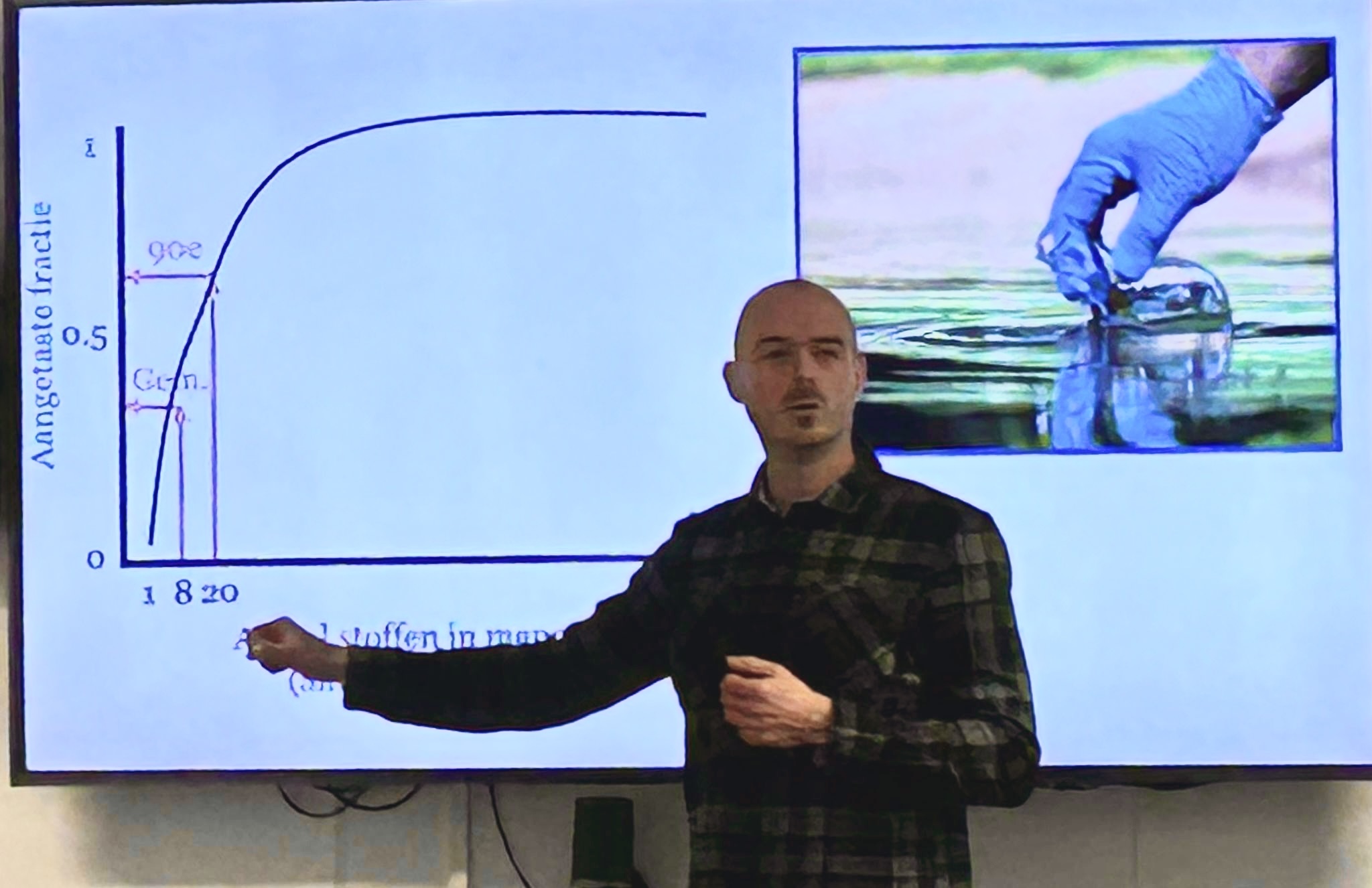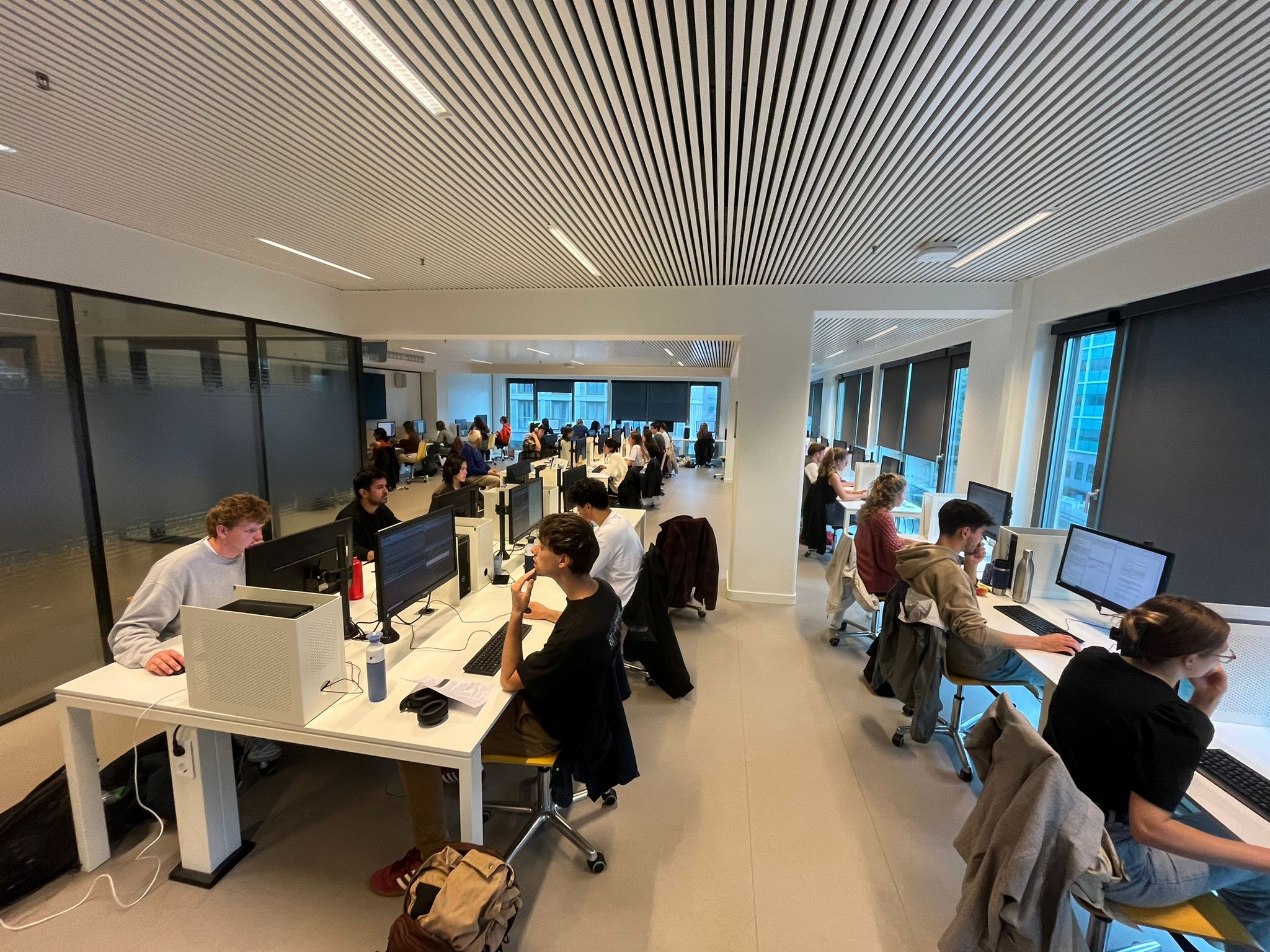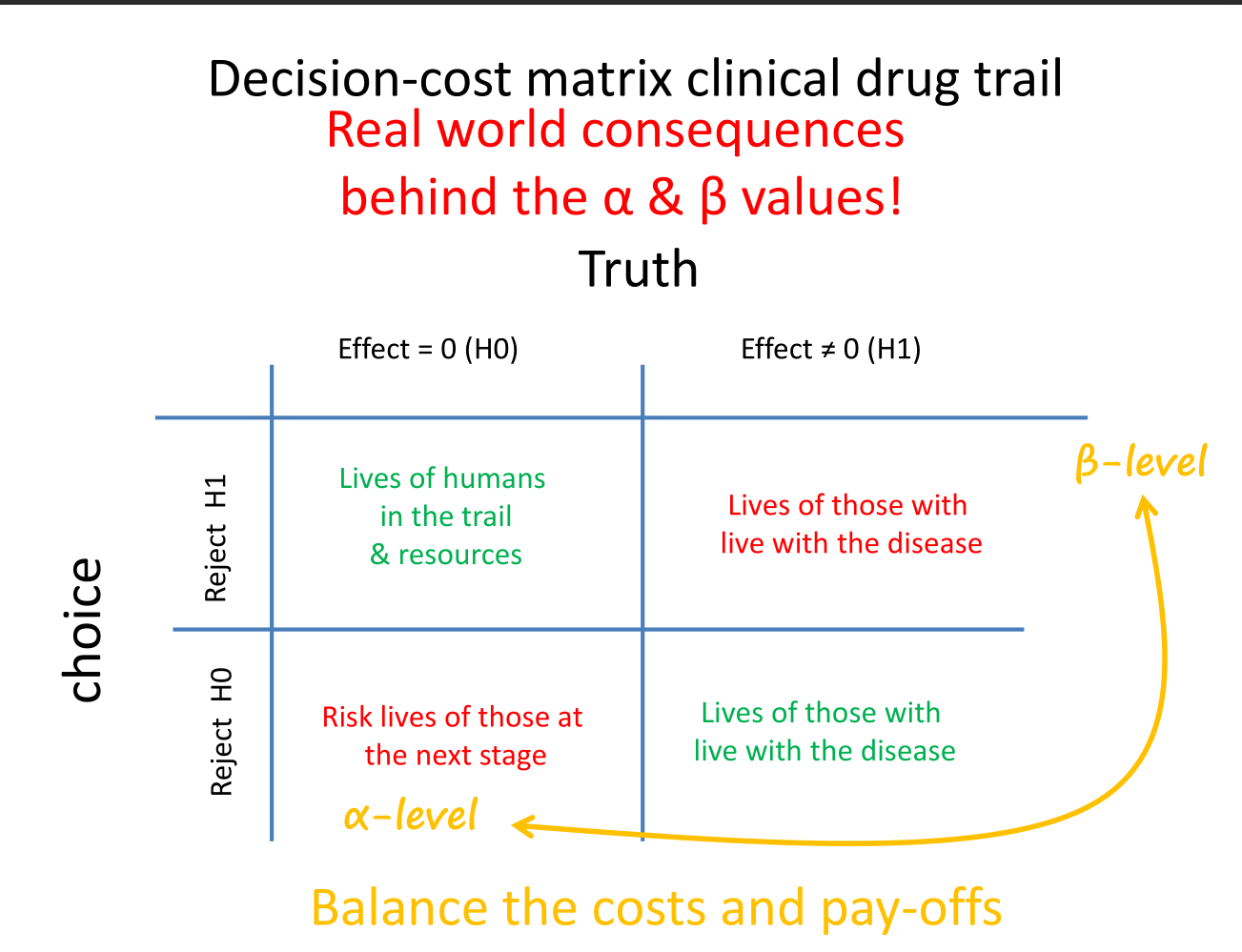Teaching
Datascience for building a common truth
The Scientist as Educator
The role of a scientist is also that of an educator. At the MuSE lab, and at CML, we take our responsibility seriously—whether it’s bringing students to the forefront of knowledge or passing on robust scientific insights in an age of (dis)information.
 We believe scientists should teach in the broadest possible setting. Hence, we have also given workshops for groups of people from water boards, nature organisations, ministries, farmers, and industry. We advocate for the importance of quantitative environmental science in decision making. In an era of misinformation, we have a responsibility to provide society with “common trurth”: a foundation of truth grounded in scientific evidence. In an age where truth is fractured and spreading doubt is an industry, our responsibility is clear: to illuminate, to guide, and to hold the line. Now, more than ever, we must ensure that evidence speaks louder than opinion—lest, as Yeats warned,
We believe scientists should teach in the broadest possible setting. Hence, we have also given workshops for groups of people from water boards, nature organisations, ministries, farmers, and industry. We advocate for the importance of quantitative environmental science in decision making. In an era of misinformation, we have a responsibility to provide society with “common trurth”: a foundation of truth grounded in scientific evidence. In an age where truth is fractured and spreading doubt is an industry, our responsibility is clear: to illuminate, to guide, and to hold the line. Now, more than ever, we must ensure that evidence speaks louder than opinion—lest, as Yeats warned,
“the best lack all conviction, while the worst are full of passionate intensity.”
Quantitative research skills: statistics for Governance

Our course offers governance students a practical introduction to essential statistical principles—including the law of large numbers, the Central Limit Theorem, probability, regression, multivariate statistics, and meta-analyses—coupled with modern approaches to reproducible research and programming.
More than just technical skills, the course emphasizes how critical decisions depend on a careful balance between type I and type II errors. In public policy, minimizing one error at the expense of the other can have profound ethical and health-related consequences. We focus on these trade-offs to highlight that, ultimately, it’s about ethics—not just statistics.

Through hands-on exercises, real-world case studies, and discussions on societal responsibility, students learn how to translate statistical theory into informed, ethical decisions that impact public safety and governance. Join us to develop the tools and insights needed to contribute to robust policy debates and ensure that data-driven decisions truly serve the public good.
Course Materials: R Tutorial
In today’s data-driven world, numeracy is as essential as literacy. Our R tutorial empowers you with the fundamentals of statistics and reproducible research—from probability and regression to dynamic data visualization—transforming raw data into actionable insights for governance. Learn to navigate complex numerical challenges and make critical decisions with confidence.